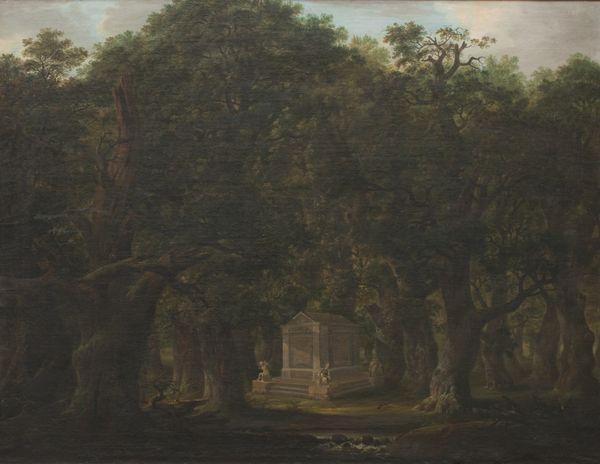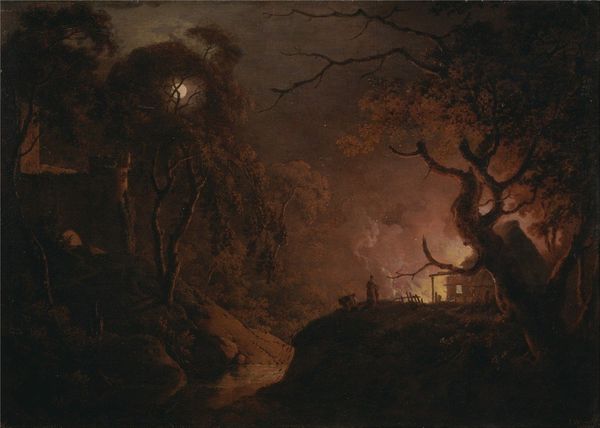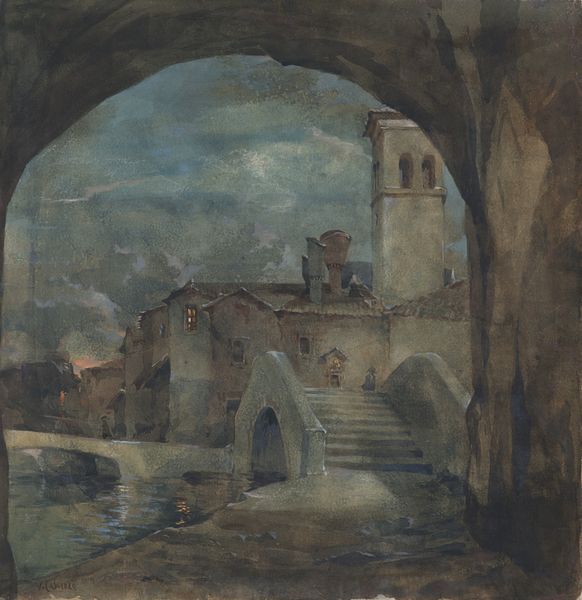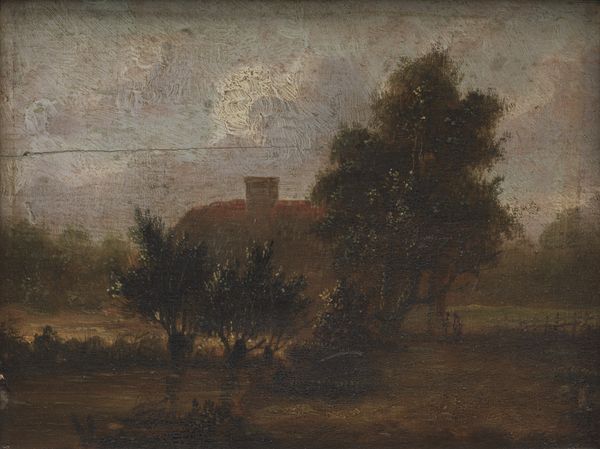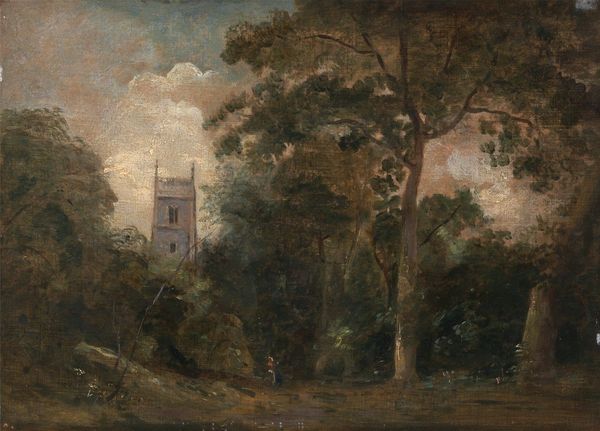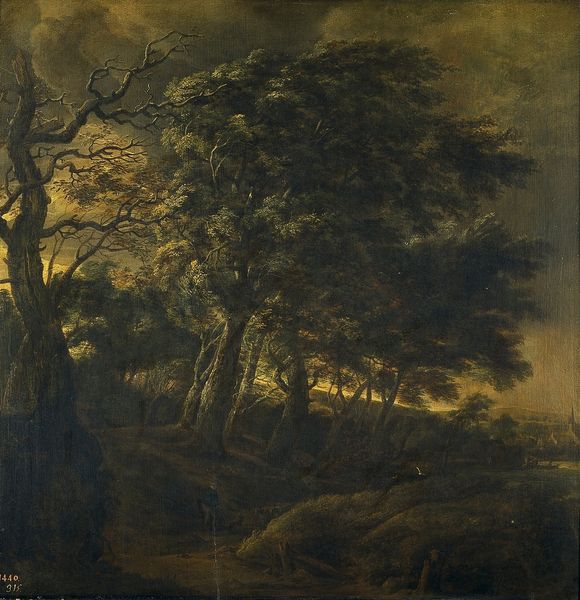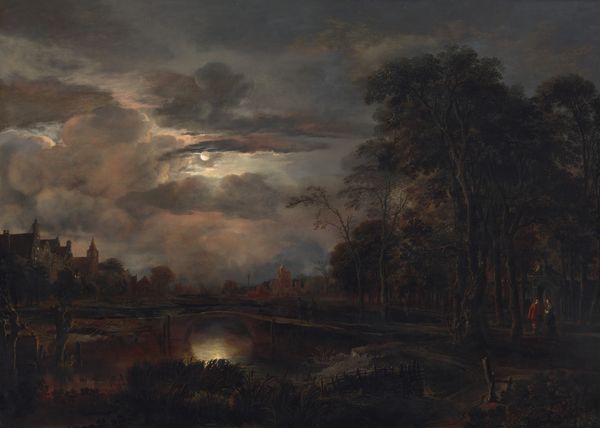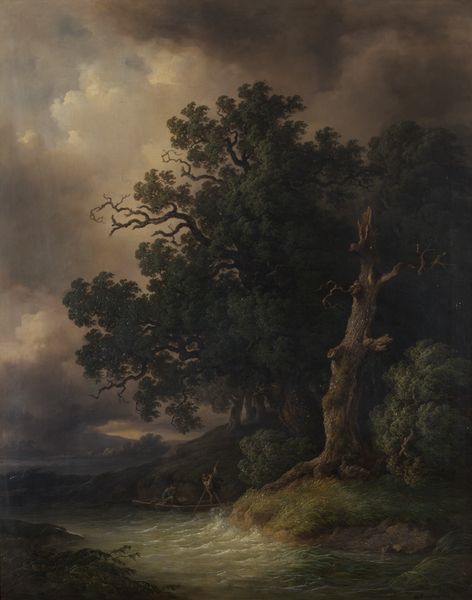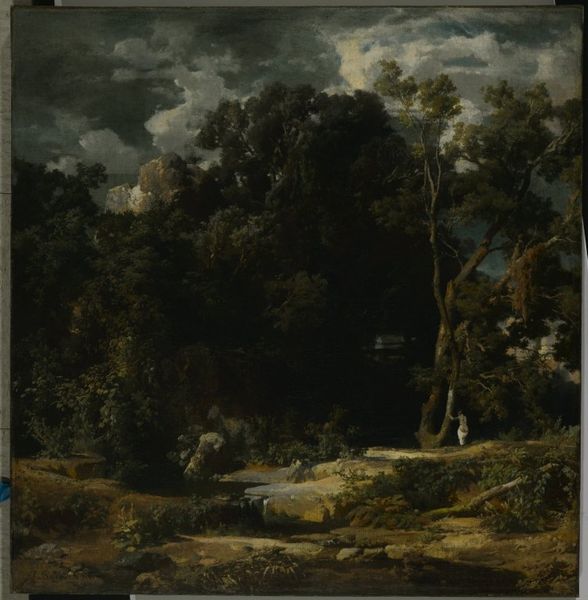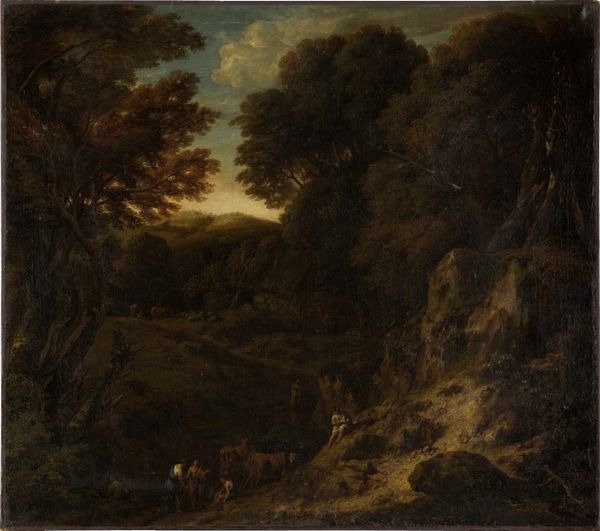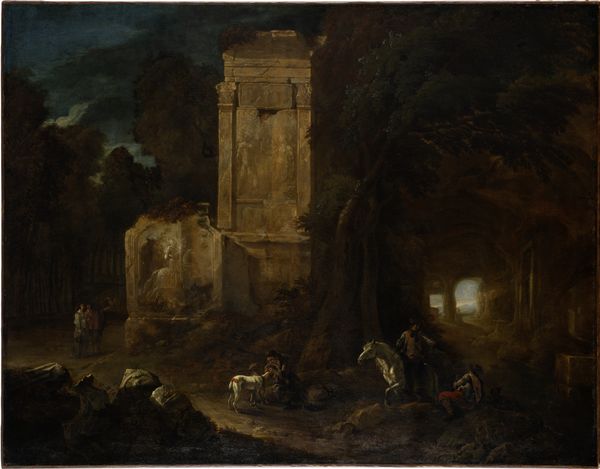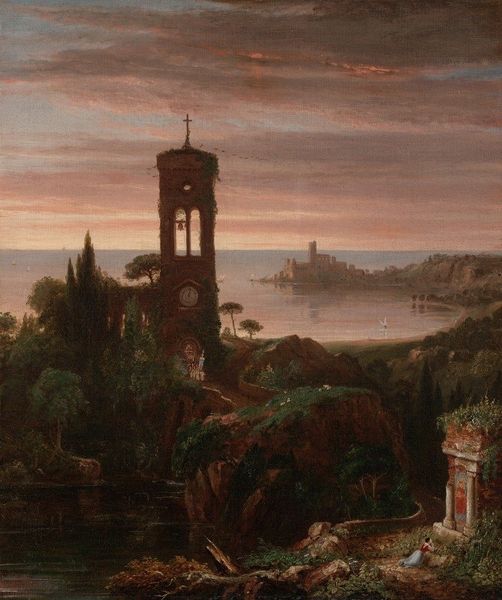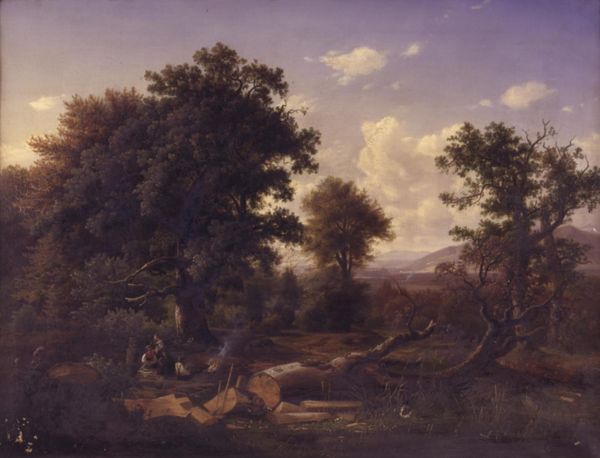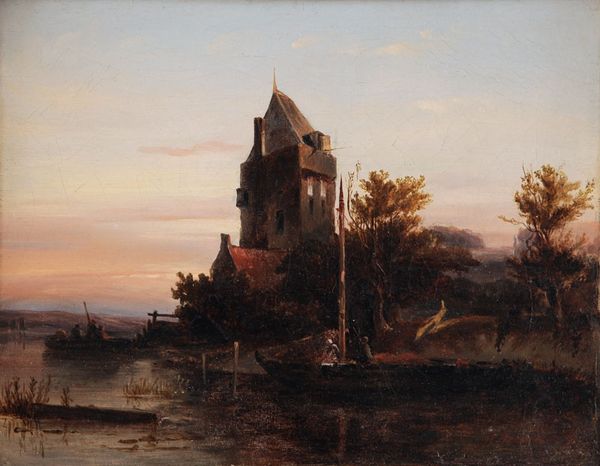
Dimensions: height 78 cm, width 64 cm
Copyright: Rijks Museum: Open Domain
Editor: This is "Monk Meditating near a Ruin by Moonlight" by Frederik Marinus Kruseman, painted in 1862 using oil paint. It's quite atmospheric. The ruined structure and the figure of the monk create such a somber mood, and the composition emphasizes a sense of solitude. What strikes you most about the artwork? Curator: The distribution of light and shadow is, I believe, the most compelling element. Observe how the artist manipulates chiaroscuro, creating dramatic contrast between the illuminated moon and the darkness engulfing the ruin. It emphasizes the textures and decaying materiality of the architecture. Consider, too, the dynamic relationship between the verticality of the ruin and the horizontality of the landscape, isn’t it unsettling? Editor: It is. So, the formal elements are more crucial to understanding it than, say, its historical context? Curator: Undoubtedly. Though knowledge of Romanticism enriches one's understanding, the intrinsic qualities of the painting are where the essence lies. Note the use of a muted, almost monochromatic, palette and how it conveys a sense of decay and transience. What emotional effect does the painting have on the viewer, based purely on its visual form? Editor: It definitely amplifies that sense of melancholic reflection. It's interesting how the limited color palette and strong contrasts work together to create that mood. I’ll have to look closer at light and composition. Curator: Indeed. Considering solely the visual construction offers a different vantage point, which brings us closer to the artist's intention, perhaps, through its materiality and construction.
Comments
rijksmuseum over 2 years ago
⋮
In the right foreground of this nocturnal scene a monk meditates near an overgrown ruin. This is the abbey in Villers-la-Ville near Brussels, the city where the painter lived for a while. The subject and the frame embellished with sheaves of wheat were inspired by the German Romantic painter Caspar David Friedrich’s famous Tetschen Altarpiece depicting a cross atop a mountain.
Join the conversation
Join millions of artists and users on Artera today and experience the ultimate creative platform.
